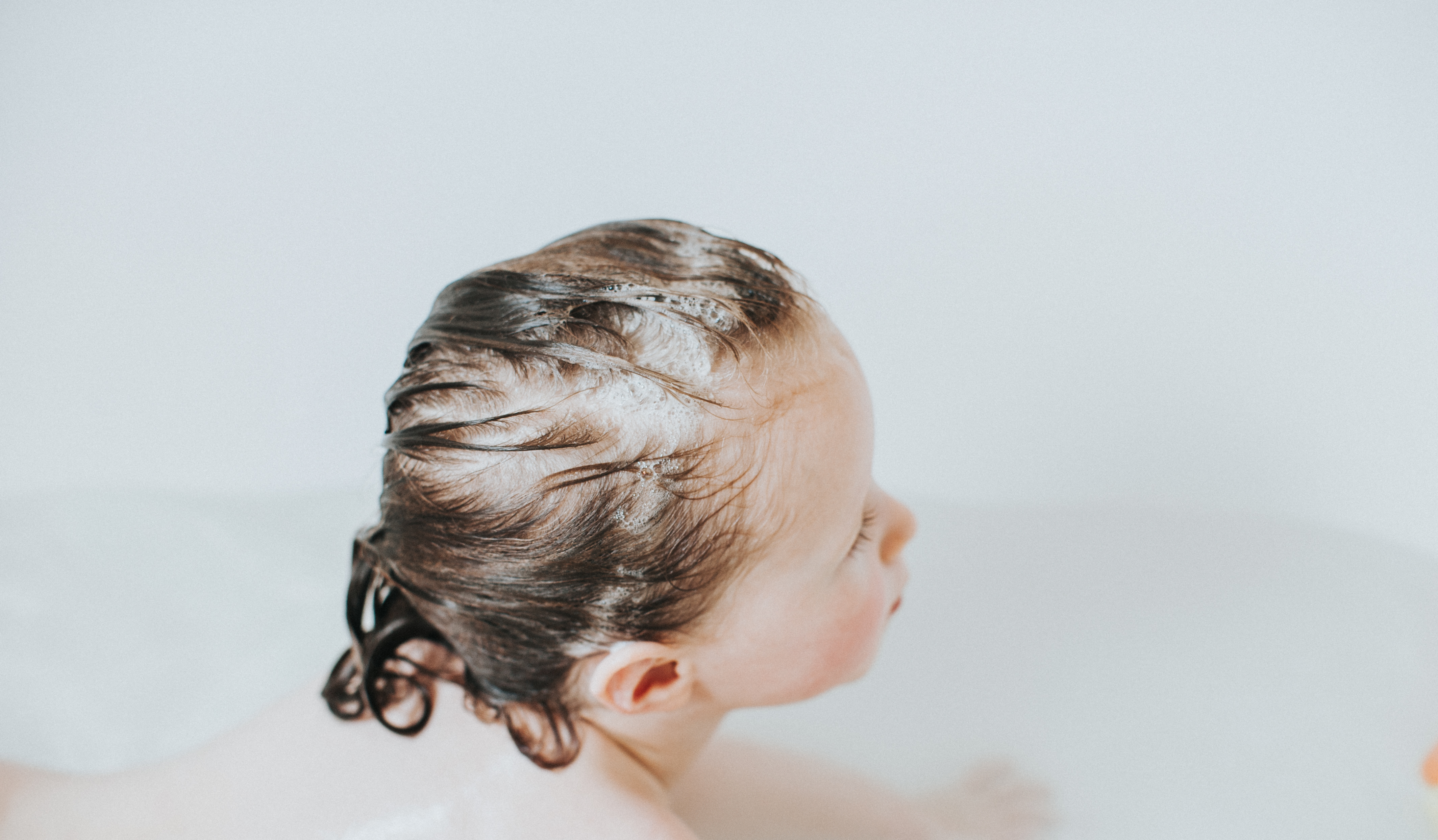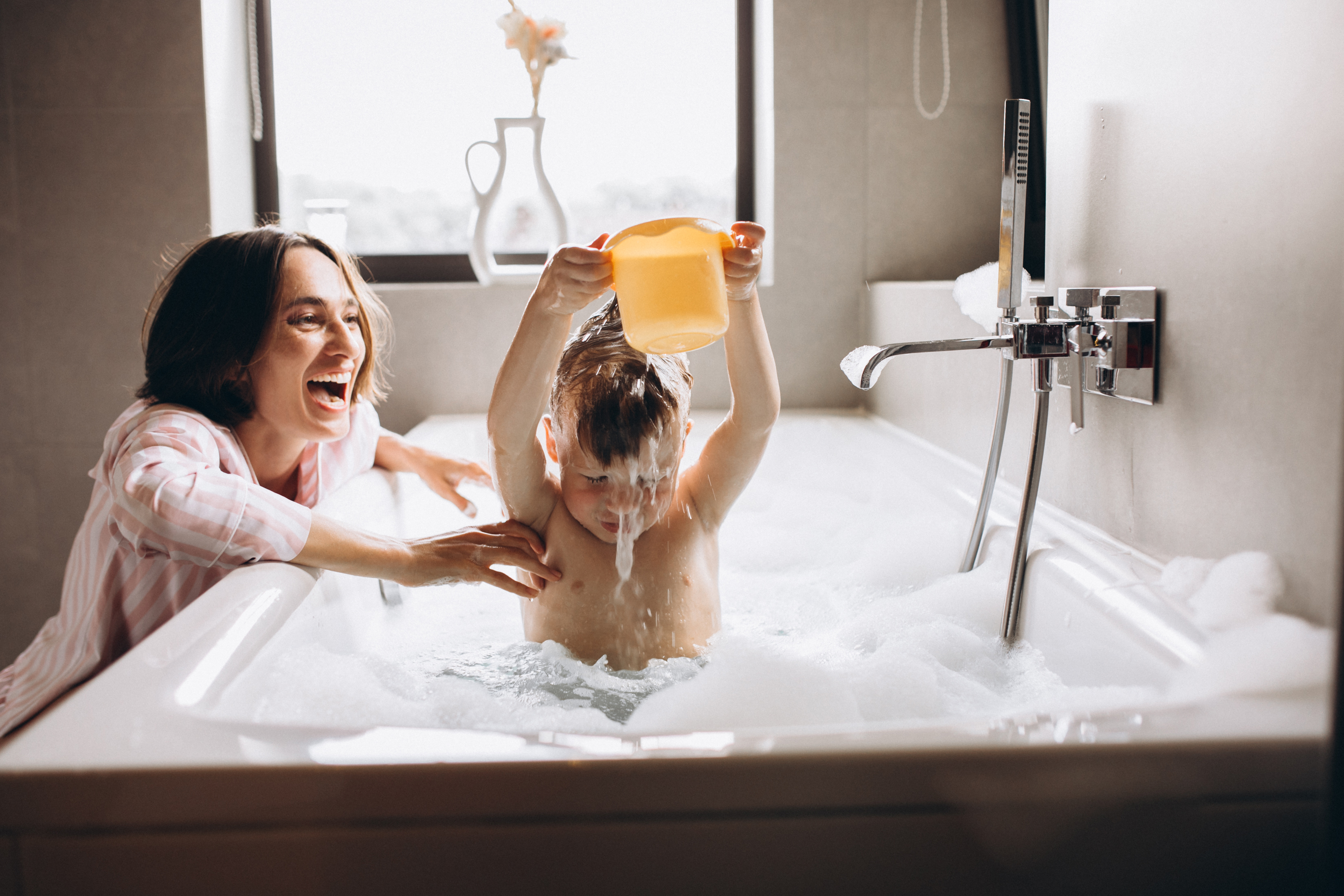The personal hygiene journey with your child begins from the very first day you bring your new bundle of joy home. This is the time when their skin and immune system are their most delicate. As your child continues to grow, they’ll become more independent. So, it’s important to help them build good skincare and hygiene habits from an early age. Not only will this help your child stay healthy, but looking and smelling clean can also boost their confidence and self-esteem. Let’s look at how you can approach person hygiene for kids, with the purpose of encouraging independence and promoting good lifetime habits.
Why is personal hygiene important for young children?
Learning about personal hygiene from the onset can help your child make sense of different bodily functions and live a healthier, happier life. Failing to guide them with this important life-lesson can lead to:
A lack of confidence
A child with poor personal hygiene is more likely to be ostracised by other children at school. This can result in a loss of confidence and self-esteem.
High susceptibility to illness
Poor personal hygiene can spread germs from the hands to the mouth and lead to illnesses such as stomach viruses.
Not looking or feeling their best
Poor hygiene habits can cause body odour, greasy skin, head lice, and poor dental health, which can make your child look untidy and potentially suffer from discomfort.
Personal hygiene: A step-by-step routine for your kid
Personal hygiene for your child is all about encouraging them to be clean. It’s very important for them as they grow, and especially during puberty, when there are several changes in their body taking place.
Developing a hygiene routine early on with your child is the first step to encouraging awareness and independence in personal cleanliness. Here are some simple steps that you can take to help your child along the way:
Handwashing
As your child grows and explores through play, they come into contact with different surfaces and often put their hands in their mouths and ears. Many of these surfaces can be dirty so it’s important to encourage them to wash their hands during the following times:
After blowing their nose, sneezing, or coughing
After coming inside or whenever they get their hands dirty from a certain activity
Before eating
After using the toilet.
Instruct them to wet all over their hands when handwashing, and not just their fingertips. If your child doesn’t have any skin sensitivities, advise them to cover their hands with soapy suds and wash them away with water. Once they’re done washing, make sure your child learns to dry their hands properly so that any remaining germs are cleaned away.
Bathing
Encourage your child to bathe at least once a day.They can use products such as shower gels and soap to properly clean their skin. If your child has sensitive skin, check that the products they’re using are suitable for them. While bathing, advise your child to focus on washing their face, underarms, bottom, groin, hands and feet.
Brushing teeth
Instruct your child to brush their teeth twice a day, for about two minutes each time. You can also encourage them to do this in front of a mirror so they can see how the toothbrushing process works. Choosing toothbrushes in their favourite colour, or with their favourite characters, can help motivate them, as can finding toothpaste flavours they like.
If your child is below 7 years, you may need to guide them by standing behind them and helping them move the toothbrush in their mouth. Alternatively, you can demonstrate toothbrushing side-by-side with your child as they copy you. Once they’re done brushing, advise them to put their toothbrush and toothpaste in the same place.
Hair washing
Encourage your child to wash their hair with shampoo. How often they should wash their hair will depend on the kind of hair your child has. If your child has hair that gets greasy quickly, they might need to wash it once every couple of days, for example.
You can also advise your child to use a conditioner to prevent their hair from getting too dry. As the parent or guardian, you can make sure that your child is using the right products for their hair type.

Face washing
As your child reaches puberty, their skin naturally becomes oilier. They may also have skin blemishes, such as pimples, scabs, bumps, and rashes. Encourage your child to wash their face with mild soap and water at least two to three times a day. Advise them to also avoid picking their pimples as this may irritate their skin.
How to improve your child’s personal hygiene habits
If you notice that your child is struggling with their personal hygiene routine, don’t be afraid to talk to them. Creating the right approach with your child requires:
Giving positive reinforcement
Don’t come down too hard on your kids about their hygiene. Instead, use positive reinforcement and words of encouragement. By avoiding confrontations, your kids are more likely to follow your advice.
Explaining the importance of maintaining good personal hygiene
Let your child know that taking care of themselves is a responsibility, just like every other household duty, such as keeping their room clean. This feeling of responsibility over their hygiene can be introduced as early as the age of 10.
Allowing them to follow you during your routine
If you want your child to adopt good hygiene habits, then it’s wise to practise what you preach. After all, it may be a little hard to convince your child to take a shower or floss daily if you’re not setting a good example yourself. Instead, let them adopt your routine so that they can consider you a role model.
Breaking tasks down into smaller steps
Children love to have fun, especially when they’re learning something new. If a task is complex or boring, your child may not be as motivated to take part in the activity.
You can make hygiene tasks simpler and fun by breaking them down into smaller steps, or creating a chart where they can tick them off once they’re complete. They may also want to do their tasks in a different order, so allow room for flexibility where possible.
Helpful tips for a successful personal hygiene routine
You can help your child develop a successful hygiene routine using the following tips:
Be patient
Sometimes it just takes patience for your child to learn hygiene basics. Keep encouraging them and remain positive with them throughout.
Don’t force it
As much as you want to get to a point where your child follows a routine, don’t force them into it. The more they feel like they’re being forced, the tougher their stance may become. It’s more beneficial to focus on things that will motivate your child, such as a small reward for completing a week of showering (for example, more time on the console or extra time at night before bedtime).
Let them help you choose products
There are certain smells from shampoos and gels that your child might find overpowering. So, why not let them choose the shampoo or body lotion that they prefer? This can motivate your child to clean themselves more often. You can even use bubble bath or bath bombs to make bath time more inviting for them.
Have a special place for their products
Whenever it’s time for your child to take a bath, make sure they have all they need all in one place in the bathroom. With a younger child, you can start by getting them used to removing items out for bath time and returning them once done. For older children, you can label bottles to let them know which ones to use for body washing, shampoo, or as conditioner.
